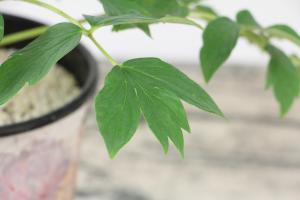Can Tea Tree Oil Cure Plantar Warts?
Plantar warts are a common skin condition that affects the soles of the feet. They are caused by the human papillomavirus (HPV), which is highly contagious and can be spread through contact with infected skin or surfaces. While plantar warts are not usually a serious medical problem, they can be painful and unsightly. Many people seek out home remedies in hopes of treating their plantar warts, and one of the most popular options is tea tree oil. But does tea tree oil actually work to cure plantar warts? Let's take a closer look.
What is Tea Tree Oil?
Tea tree oil, also known as melaleuca oil, is an essential oil that is derived from the leaves of the tea tree plant (Melaleuca alternifolia). It is native to Australia and has been used for centuries by indigenous people for its medicinal properties. Today, tea tree oil is widely available and is commonly used in a variety of natural health products, including shampoos, creams, and essential oil blends.
How Does Tea Tree Oil Work?
Tea tree oil is believed to have a number of health benefits due to its antiseptic, antimicrobial, and anti-inflammatory properties. When applied topically, it can help to kill bacteria and fungi and reduce inflammation. This is why it is often used to treat skin conditions like acne, psoriasis, and eczema.
What Does the Research Say?
While there is some anecdotal evidence that tea tree oil can help to cure plantar warts, there is not much scientific research to support this claim. One study published in the Australasian Journal of Dermatology found that tea tree oil was effective in treating plantar warts in two out of six patients. However, the study was small and the results cannot be generalized to the wider population.
Another study published in the European Journal of Dermatology found that tea tree oil was no more effective at treating plantar warts than a placebo. The study included 74 patients with plantar warts and randomly assigned them to either a tea tree oil treatment group or a placebo group. After 12 weeks of treatment, there was no significant difference between the two groups in terms of wart clearance rates.
How to Use Tea Tree Oil for Plantar Warts
If you still want to try using tea tree oil to treat your plantar warts, here are some tips:
Mix 1-2 drops of tea tree oil with a carrier oil, such as olive oil or coconut oil.
Clean the affected area with soap and water, and then apply the oil mixture to the wart.
Cover the area with a bandage and leave it on for several hours, or overnight.
Repeat this process daily until the wart disappears or improves.
It's important to remember that tea tree oil is not a cure-all and may not work for everyone. If your plantar wart does not improve after several weeks of treatment, or if it becomes more painful or swollen, you should consult a healthcare provider for further evaluation and treatment.
The Bottom Line
While some people swear by tea tree oil for curing plantar warts, the scientific evidence is not conclusive. If you decide to use tea tree oil as a home remedy, be sure to do so carefully and follow best practices to avoid skin irritation or other side effects. If you are concerned about your plantar warts or have any other questions or concerns about your skin health, be sure to consult a healthcare provider.

 how many times do yo...
how many times do yo... how many planted tre...
how many planted tre... how many pine trees ...
how many pine trees ... how many pecan trees...
how many pecan trees... how many plants comp...
how many plants comp... how many plants can ...
how many plants can ... how many plants and ...
how many plants and ... how many pepper plan...
how many pepper plan...





























